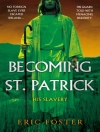In ‘The Greatest Gothic Novels of Edward Bulwer-Lytton, ‘ the reader is invited into a labyrinth of psychological intrigue and supernatural horrors that define the essence of Gothic literature. Bulwer-Lytton masterfully weaves together elements of romance, mystery, and the uncanny, creating a tapestry that reflects the complexities of 19th-century society. His compelling narrative style, characterized by rich descriptions and atmospheric settings, invites readers to explore the darker aspects of human nature, symbolized by his intricate characters and haunting backdrops. As a formative figure of the Gothic genre, Bulwer-Lytton’s works, including the memorable ‘Zanoni’ and ‘The Haunted and the Haunters, ‘ resonate with the tensions of Enlightenment thinking colliding with Romantic imaginings. Edward Bulwer-Lytton, a prominent Victorian novelist, politician, and playwright, emerged during a time of significant social and cultural transformation. His own life experiences, marked by a fascination with the esoteric and the exploration of psychological depth, fuel his literary imagination. Bulwer-Lytton’s brush with occult themes and his engagement with philosophical discourses about the nature of existence further inform the profound moral questions embedded in his works, revealing both imaginative storytelling and intellectual rigor. This anthology is an essential read for aficionados of Gothic literature and newcomers alike. It not only showcases Bulwer-Lytton’s adept narrative style but also serves as a critical reflection on societal anxieties of his time. Through these novels, the reader will traverse the shadowy realms of the human psyche, making for an enthralling exploration of fear, love, and the supernatural.
Yazar hakkında
Edward George Earle Lytton Bulwer-Lytton, first Baron Lytton (1803–1873), was an influential English writer, who wrote under the pen name Edward Bulwer-Lytton. He was a versatile author whose works spanned multiple genres, including historical romance, science fiction, occult fiction, and gothic horror. Bulwer-Lytton is best remembered for his foray into the gothic genre, particularly through his collection, ‘The Greatest Gothic Novels of Edward Bulwer-Lytton.’ His unique literary style combined an elaborate diction with a keen interest in the psychological and supernatural elements, which were innovative for his time. He also contributed to the popularity of the opening phrase ‘It was a dark and stormy night, ‘ which is often parodied in pop culture. His lesser-known endeavors in science fiction, notably in ‘The Coming Race’ (1871), introduced readers to speculative and utopian themes that would later inspire other writers in the genre. As a significant figure of 19th-century literature, Bulwer-Lytton’s work was celebrated for its imagination, rich narrative, and the ability to intertwine political and social commentary with storytelling. Despite facing criticism for prose considered florid by modern standards, his novels continue to be of interest to literary scholars and enthusiasts of Victorian literature. Bulwer-Lytton’s cultural and artistic influence extended beyond literature, as he engaged in politics, serving as a Conservative MP, and held the position of Secretary of State for the Colonies, leaving an indelible mark on both the literary and political landscapes of his era.












